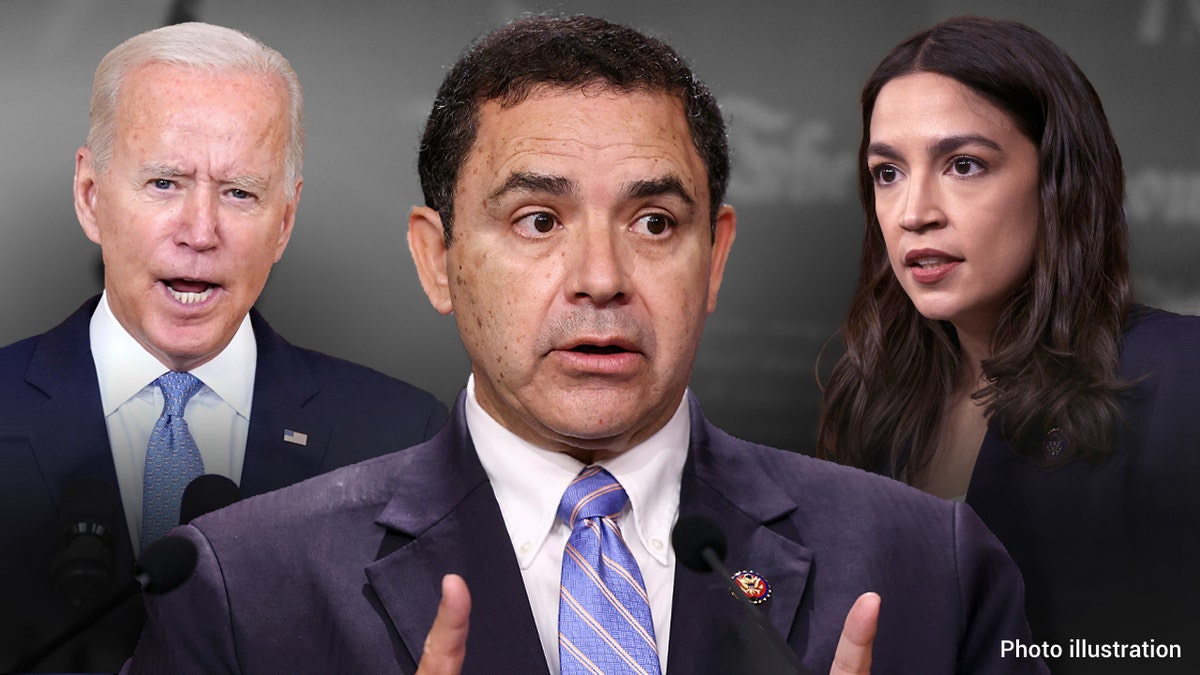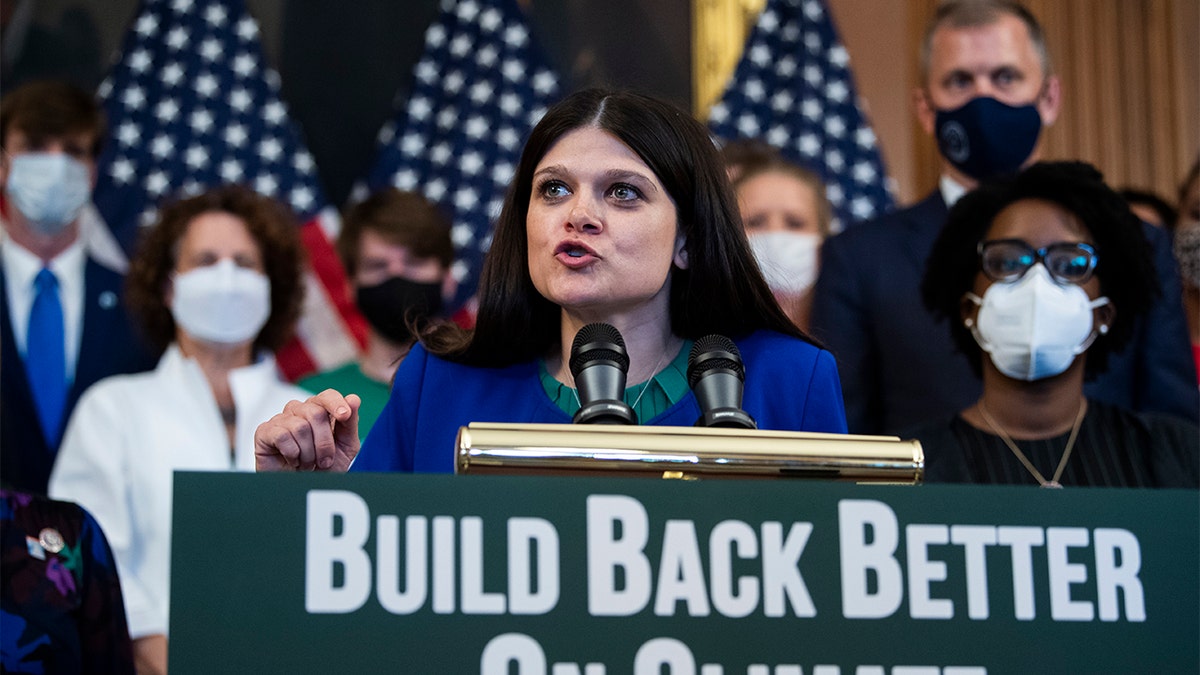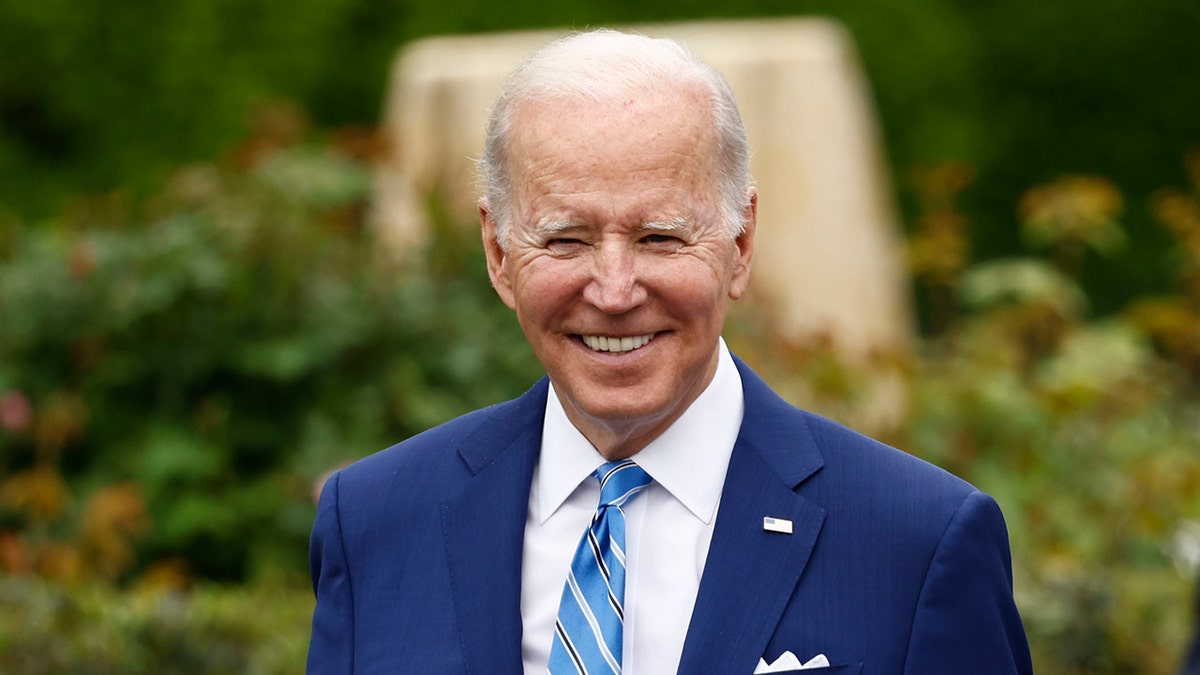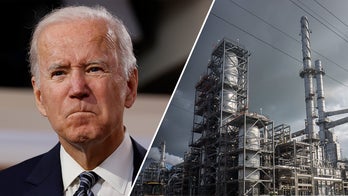Sen. Tim Scott calls reconciliation bill 'great American shakedown'
Sen. Tim Scott, R-S.C., spoke with Fox News' Neil Cavuto.
House members will return to Washington Friday to vote on the $739 billion tax, climate and health care bill — a top priority for President Biden's domestic agenda — but all eyes are on the Democratic Party's most far-left lawmakers.
Speaker Nancy Pelosi, D-Calif., is expected to push the legislation through despite widespread GOP opposition. Given a narrow Democratic majority, Pelosi can only afford four defections from her caucus on any vote before having to rely on GOP support.
At the moment, it is uncertain if the legislation will clear that threshold given the silence of several high-profile progressive Democrats.
While most far-left lawmakers are expected to back the legislation, some have criticized it for being too friendly to the fossil fuel industry. Sen. Bernie Sanders, I-Vt., lambasted the bill last week during a marathon voting session as not going far enough to combat climate change.
HOUSE DEMOCRATS APPEAR UNITED, POISED TO PASS SCHUMER-MANCHIN SOCIAL SPENDING AND TAX INCREASE BILL

It's unclear if the legislation will clear the threshold given the silence of several high-profile progressive Democrats. (Getty Images)
"This bill, as currently written, includes a huge giveaway to the fossil fuel industry," said Sanders. "It's a slap in the face to the communities fighting to protect themselves from filthy fossil fuels."
Sanders eventually wound up voting for the bill after his attempts to have it amended to prevent subsidies from going to energy companies were defeated. Support from his top allies in the House, a cadre of six far-left lawmakers known as the "Squad," is less certain.
So far, only three members of the "Squad" — representatives Jamaal Bowman of New York, Ilhan Omar of Minnestoa and Ayanna Pressley of Massachusetts — have endorsed the legislation. The others have remained mum on the bill.
MANCHIN SAYS TRUMP CAMPAIGNING AGAINST HIM MAY ‘HELP ME’ AFTER FORMER PRESIDENT MAKES 2024 THREAT
Last year, the Squad nearly tanked Biden's bipartisan infrastructure bill over climate concerns. The bill would have failed in the House if not for the support of 13 moderate Republicans.
Many Democrats worry that if members of the Squad join with at least one or two moderate Democrats they will sink the bill.
Such fears hang over Friday's vote. Failure is not assured by any means, especially after a leading moderate Democrat threw his weight behind the bill Thursday.
"No bill is perfect," said Rep. Henry Cuellar, D-Texas. "However, compromise, commonsense and rising above partisan politics to make meaningful and balanced change is our duty as legislators."

Rep. Henry Cuellar, D-Texas, speaks on southern border security and illegal immigration during a news conference at the U.S. Capitol July 30, 2021. (Kevin Dietsch/Getty Images)
Cuellar and another Texas Democrat had previously raised concerns about the bill's inclusion of a fee on methane emissions. His decision to back on the eve of the vote comes after other high-profile holdouts began to fall in line.
Rep. Kurt Schrader, D-Ore., announced his support for the bill on Monday along with several other leaders of the moderate Blue Dog Coalition. Schrader, who lost his bid for re-election this year to a more progressive primary challenger, was viewed as a potential no vote by health care lobbyists.
The Oregon lawmaker previously voiced concerns about allowing Medicare to negotiate the price of prescription drugs, a key provision in the Manchin-Schumer bill. He's also broken with Pelosi recently on gun control measures, like banning assault weapons.
"We remain laser-focused on solving our nation’s major economic, energy and climate problems for future generations and will move swiftly to send this bill to the president’s desk," Schrader said in a joint statement with other Blue Dog leaders.

Given widespread GOP opposition, Democrats cannot bank on any House Republicans to help them pass the bill. (Tom Williams/CQ-Roll Call, Inc via Getty Images)
Given widespread GOP opposition, Democrats cannot bank on any House Republicans helping them pass the bill.
Republicans say the bill's proposed 15% minimum corporate tax hike, which will raise an estimated $739 billion over the next decade, is detrimental to businesses at a time the economy is in a recession.
"The Democrats’ partisan spending plan is a direct attack on Main Street America and appeals to far-left climate activists at the expense of entrepreneurs and job creators," said Rep. Roger Williams, R-Texas.
HOUSE REPUBLICANS, HEALTH CARE GROUPS WHIPPING AGAINST $739B MANCHIN-SCHUMER BILL
"Every taxpayer should be outraged at this partisan process and reckless government spending that will accelerate the inflation crisis and hurt the pocketbooks of every American household."
Republicans have also slammed the bill's $339 billion investment in climate change subsides, which the White House says will cut U.S. greenhouse gas emissions 40% by 2030.
"It is a power grab in the name of climate change," said Sen. Lindsey Graham, R-S.C. "It is a tax-and-spend bill at a time we can least afford it."

President Biden, already the oldest president to hold the office, turns 80 in November and would be 86 years old at the end of a second term. (Ting Shen/Bloomberg via Getty Images)
Much of the GOP criticism in recent days has centered around the bill's $124 billion investment in the IRS. Republicans say the money will go toward hiring 87,000 new IRS agents.
"The IRS already disproportionately goes after rural areas, farmers, red states and low-income earners," said Georgia Rep. Drew Ferguson, who, as GOP chief deputy whip, is working to ensure every House Republican opposes the bill.
"Supercharging the agency by doubling the size of employees … is a direct attack on hard-working Americans."
CLICK HERE TO GET THE FOX NEWS APP
The Schumer-Manchin bill passed the Senate last week along party lines. The move came after months of back-and-forth negotiations between Democratic Sen. Joe Manchin of West Virginia and Majority Leader Chuck Schumer of New York.
An initial version of the bill, dubbed Build Back Better, stalled last year amid Manchin's fears it would exacerbate inflation. The West Virginia Democrat reversed course this year after getting sufficient concession from Schumer and whittling the bill down from its initial $3.5 trillion price tag.
If successful in the House, the legislation will be a major win for Biden. Not only does the legislation help the president meet his climate goals, it also allows Medicare to negotiate the cost of some live-saving prescription drugs and expands Obamacare subsidies.






